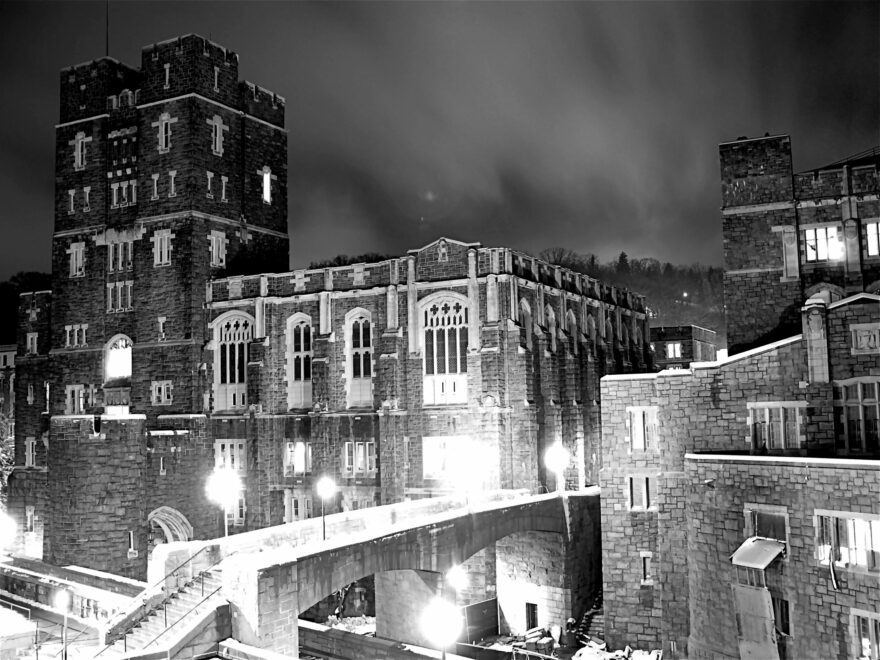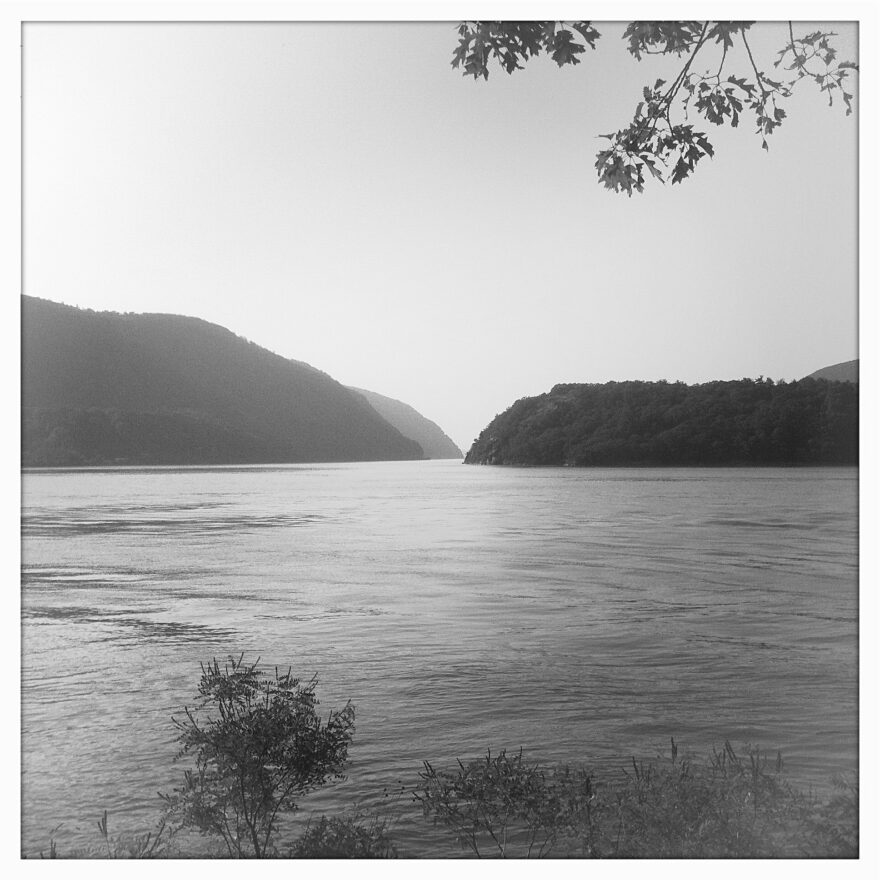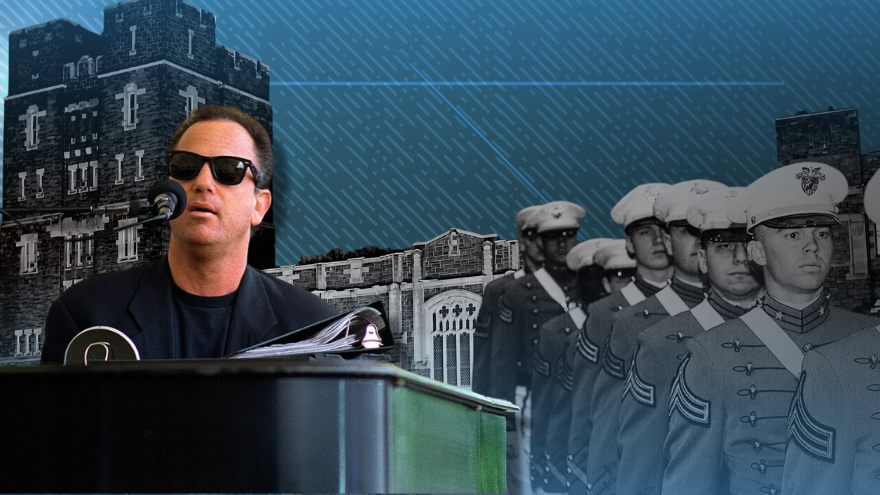Last month, a flood destroyed my hometown. It washed away roads and bridges. Cars fell into sinkholes. Boulders crashed down mountains. The parkway became a river. People were pulled through their car windows before the water rose above the doors.
One of my friends was rescued after abandoning her car in the water. She was nine months pregnant. When she finally got safely home—she found that her home had been lost to a landslide.
The mayor told me there’s $34 million worth of damage to town property alone.
My hometown is the middle town of a cluster of three old river towns at the base of Storm King Mountain—where the mountain meets the Hudson River. These are Fort Montgomery, Highland Falls and West Point, New York.
For approximately two weeks, right up until New York locked itself down for a virus, I was a West Point tour guide. For the first time in my thirty years in that town, we all saw the tourist population vanish. We were used to a constant rush of tourists, sometimes many of which were Japanese visiting the basement of the West Point Museum to view the shell that once carried the Fat Man atom bomb. It always looked like a pilgrimage of generational healing. Families posing for photos with the bombshell. I thought of it as a bookend to a lineage of war. They would reduce it to a photograph with smiles and walk across the street for ice cream. Our tour bus would start there and proceed through the next monuments to war and destruction.
But I am a failed tour guide. If the lockdowns didn’t grind everything to a halt, I would’ve probably been fired. I had zero interest in sticking to the script they handed out at training. The boss didn’t like tangents. Like, I could’ve done a whole bit on Edgar Allan Poe as we drove out of the museum parking lot toward Thayer Gate, but they wanted me to rattle off the mind-numbing academic statistics.

Just because Poe, one of the most important writers in American history, didn’t graduate from the Academy, and just because he might’ve turned into a drinking maniac here at the Benny Havens bar, doesn’t mean we shouldn’t discuss his role in our history. (My friends and I also drank at Benny’s.) The bar had moved locations in town since Poe started drinking there—because the owner was exiled from West Point for serving the “flip.”
The flip was a concoction of ale or cider with beaten eggs, served after dipping a red-hot poker into the drink to heat it.
When the people in charge at West Point found out that Benny’s drink was so strong, they kicked him off base. This was in 1832—only 30 years after West Point was officially founded as a war college. (And this was one year after Poe was supposedly kicked out of West Point for drunken disorder.) Benny and his wife, Letitia Havens, would become the only American citizens to be banished from West Point for life.
After Benny’s exile, when he re-located beneath the cliffs of Buttermilk Falls (Highland Falls’ original name), right along the river, just over a mile from the cadet barracks, the cadets would still risk their lives sneaking along the bluff from West Point to Highland Falls for a drink.
Jefferson Davis, long before he became the President of the Confederacy, fell down the cliffs along the river after escaping from Benny’s when it had been busted up by some angry military officers.
William Tecumseh Sherman, General Armstrong Custer, and former U.S. President Ulysses S. Grant all drank at Benny’s when they were cadets at the Academy.
Anyway, all of this would’ve been stuff that I preferred to tell the tourists as our bus drove up Main Street.
Today, it looks like Benny’s is one of the last bars in town. A few other mainstays have closed since the flood.
There are condemned signs on multiple homes. Dirt and rock and mud are still swept across the roads. There’s a man on the dentist’s porch pushing white slats back into the railing like new teeth.
The Civil War historian, Shelby Foote, once said, “I have noticed that when a man dies no matter at what age or by what cause his life then has a beginning and a middle and an end. And sometimes his death explains his youth.”
I think about this sentiment when it comes to my town. We’ve had a few phases of death and destruction.
This place was nearly destroyed by one of its inhabitants before it was even officially founded.
On August 3, 1780, George Washington put Benedict Arnold in Command of West Point (though at the time it would be known as Fort Arnold). Benedict claimed he could not fight on the battlefield anymore due to leg injuries sustained earlier in the Revolution, so Washington, who seemed to respect him as a General, appointed him to oversee the fort.
Secretly, Arnold was still bitter. He felt like he didn’t get the proper recognition he deserved. He had a family, was in debt, and the Revolution was at a stalemate. So, Benedict devised a plan to sell West Point to the British.
Benedict let West Point fall into disrepair. Portions of the great chain that they had assembled and pulled across the Hudson River to stop British warships had sunk below the water. The defenses above the river had weakened. Pigs ran wild. Washington himself when he heard the rumors and came to inspect.
Arnold lived directly across the river at the Robinson House. He had been told by his peers to not make this house his residence because it was vulnerable to the enemy. His peers didn’t know that that’s exactly why he chose the house. He thought it would make for an easy getaway once the British took control of West Point.
But Arnold had to flee for his life before his plan could take effect. He heard that the Continental Army captured the British Major John Andre. Arnold knew that Andre had a letter in his boot that would expose him as a traitor. The punishment for treason is death by hanging. Arnold ran to the river and headed south for the British warship, the HMS Vulture. His wife Margaret and their newborn child stayed behind.
He got away. He’s buried in the basement of St. Mary’s at Battersea in London. I sometimes think about visiting his grave the way tourists come here for selfies with the bomb.
When I got to my parents’ house, I learned that the dam on the lake where I learned to fish was completely destroyed by the flood. The small bridge that crossed the stream next to our home is gone—the steel beams are piled right where the water left them.
Surreal to see your hometown gutted by a flood. The water looks like it excavated the area. Some kind of freak archaeological dig attempting to return us to the beginning.

You know, Billy Joel lived here for a little while, too. This is where he wrote the song, “Summer, Highland Falls.”
As I tour the mess, I think about the times we saw Storm King Mountain on fire, the hurricanes, the earthquakes that hardly registered on the Richter scale, the friends we lost, the cliffs we’ve jumped, the car wrecks, the overdoses, the hit and runs, the hostage situations, the man at the toll booth whose brother was killed by the mob, the iodine pills in the principal’s office with our names on them because there was a fear that hijackers would fly a plane into the nuclear power plant across the river after 9/11—and I’m just imagining the town itself singing the opening lines from the Billy Joel song:
“They say that these are not the best of times / But they’re the only times I’ve ever known.”
P.S. This is my official invite to Billy Joel to please come perform a benefit concert in my hometown to help raise money for the victims of the flood.
